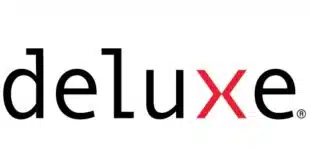Recent research by Aite Group LLC estimated the Visa and MasterCard bank card networks paid nearly $5 billion to merchants and card issuers between 2005 and 2007 to spur acceptance or issuance of their respective brands (Digital Transactions News, Feb. 20). Visa Inc.'s latest registration statement, filed Monday in advance of Visa's planned initial public offering of stock, essentially confirms Aite's thesis that buying loyalty is an expensive proposition. In its financials, Visa reports so-called “volume and support incentives” to merchants and issuers as reductions in operating revenue. This week's filing puts the value of those incentives at $250 million for the quarter ended Dec. 31, 2007, the first quarter of Visa's fiscal 2008, up 84% from $136 million in the year-earlier quarter. Visa attributed the increase in part to “incremental new agreements assumed since the prior-year comparable quarter, the absence of significant performance adjustments which reduced volume and support agreements in the prior year, and increases in volume and support incentives due to higher payments and transaction volumes,” according to the filing. The filing further notes that program costs “are expected to increase significantly” in the second fiscal quarter because of new contracts signed in late 2007 and a charge related to a specific contract. Contracts can range from one to 13 years and include payouts of cash and other, undefined incentives in exchange for a partner's commitment to increase Visa volume. Pricing is set individually. Visa expects to net $15.6 billion from the IPO?and potentially $17.1 billion if the underwriters exercise their over-allotment options?after paying underwriting expenses for selling 406 million so-called Class A shares to the public at $37 to $42 per share. Even at the low end, Visa's IPO would be the biggest in U.S. history (Digital Transactions News, Feb. 25). Visa plans to put $3 billion of the proceeds in an escrow account to cover possible judgments and other litigation expenses. Visa will use some $10.2 billion to redeem 123.2 million Class B shares held by U.S financial-institution member/owners and 143 million Class C shares held by non-U.S. members. Visa will devote the remaining proceeds to other corporate expenses, including further redemptions of Class C stock next October. Visa's founders and biggest current owners could profit handsomely under the plan, a trade-off for losing voting control of the company after the IPO under an October 2007 reorganization that consolidated the former Visa U.S.A., Visa Canada, and Visa International regional units and Visa's Inovant processing and technology company into subsidiaries of Visa Inc. Assuming a $39.50 mid-point IPO price, Visa's largest shareholder, JPMorgan Chase & Co., which will hold 23.3% of the post-IPO Class B shares, would reap an estimated $1.1 billion. Other estimated payouts at the mid-point price, preceded by percent of post-IPO Class B shares, would be: Bank of America Corp. (the successor to Visa's founding bank), 11.5%, $560 million; National City Corp., 8%, $389 million; Citigroup Inc., 5.5%, $268 million; U.S. Bancorp, 5.1%, $248 million; and Wells Fargo & Co., 5%, $243 million. These payouts could reduce the sting of Visa's recent $2.25 billion antitrust settlement with American Express (Digital Transactions News, Nov. 7, 2007). Visa passed on the costs of the settlement to its U.S. members, and several large members themselves collectively were responsible for $185 million. The expenses caused a number of banks to take multimillion-dollar charges against their fourth-quarter earnings. London-based Visa Europe Ltd., as holder of 50.2% of the Class C shares, stands to gain an estimated $2.8 billion. Visa Europe was not part of the reorganization. The association continues to be owned by European financial institutions and licenses the Visa brand.
Check Also
Zoho Launches Zoho Payments In the U.S. Market
Zoho Corp., an Indian multinational software company, is launching Zoho Payments in the United States. …





